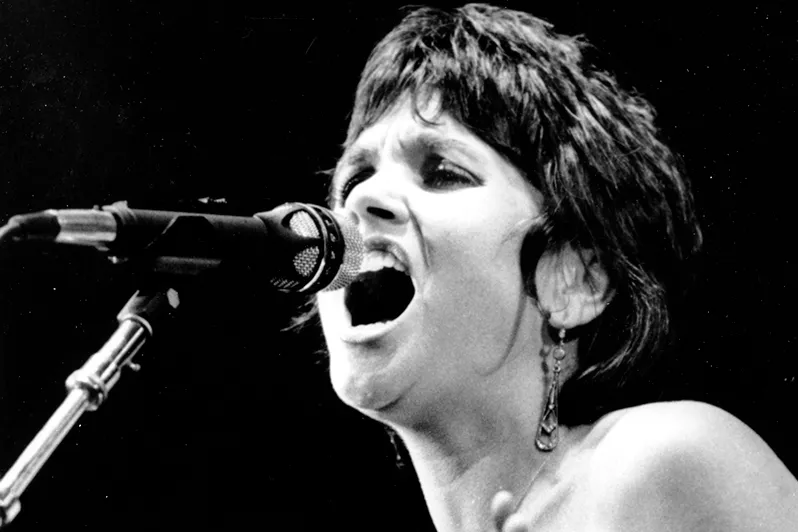
A Smoky Whisper of Longing, Reimagined with Elegance and Ache
When Linda Ronstadt released her interpretation of “Ooh Baby Baby” in 1978 on the Grammy-winning album Living in the USA, she brought a haunting intimacy to a Motown classic that had already embedded itself in the collective soul. Originally penned by Smokey Robinson and Pete Moore, and first recorded by Smokey Robinson & the Miracles in 1965, the song had long stood as a paragon of aching remorse and tender vulnerability. Ronstadt’s version, drenched in wistfulness and restraint, carved its own quiet triumph: it reached No. 7 on the Billboard Hot 100, reaffirming her rare ability to translate songs across genre lines without losing an ounce of their emotional truth.
In Ronstadt’s hands, “Ooh Baby Baby” becomes less a cover than a personal confession. The arrangement—elegantly restrained and built around plush strings, subtle horn accents, and a languid tempo—allows her voice to rise like mist over heartbreak. She does not mimic Smokey’s falsetto-laced fragility; instead, she offers something more grounded, a wounded richness that suggests not just regret but lived experience. That difference is pivotal: where the original had an air of youthful lament, Ronstadt sings as someone who knows what it means to lose love slowly, moment by painful moment.
The decision to include this track on Living in the USA, an album otherwise known for its driving rock sensibilities and covers of Chuck Berry and Elvis Costello, was emblematic of Ronstadt’s fearless eclecticism. By the late 1970s, she had already blurred boundaries between country rock, pop balladry, and traditional standards. With “Ooh Baby Baby,” she reached deeper into the heart of soul music—not to mimic its form but to inhabit its feeling.
Lyrically, the song is an open wound dressed in silk. “I’m just about at the end of my rope,” it confesses early on—a line that barely hints at the seismic emotional collapse beneath it. The repeated refrain of “I did you wrong” is more than apology; it’s a mantra of self-flagellation, sung not for forgiveness but for remembrance. In Ronstadt’s voice, these words become stained glass: each phrase refracts sorrow through dignity, each breath is heavy with unspoken memories.
Musically, her version floats in a suspended state between torch song and lullaby. The slow burn of the arrangement places emphasis not on dramatics but on subtlety—the space between notes becomes as important as the notes themselves. Ronstadt’s phrasing—at once delicate and deliberate—turns every syllable into emotional calligraphy.
The enduring power of her rendition lies in its restraint. Where others might reach for vocal pyrotechnics, she leans into silence and suggestion. In doing so, she reveals an essential truth about heartbreak: that it often speaks loudest when barely whispered.
More than four decades later, Linda Ronstadt’s “Ooh Baby Baby” remains a masterclass in reinterpretation—not merely revisiting a beloved song but reinhabiting it from another soul’s perspective. It’s not just nostalgia; it’s resurrection.